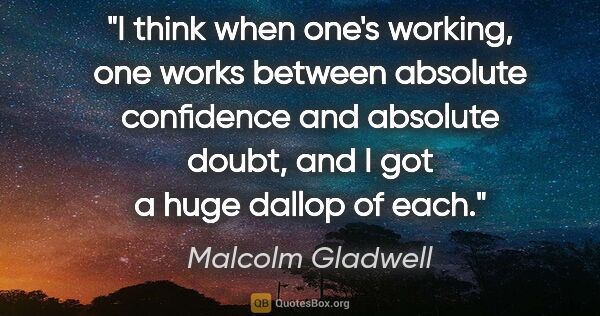Each Quotes (page 73)
Once so much to each other! Now nothing! There had been a time, when of all the large party now filling the drawing-room at Uppercross, they would have found it most difficult to cease to speak to one another. [...] Now they were as strangers; nay, worse than strangers, for they could never become acquainted.
Jane Austen
Life is complex. Each one of us must make his own path through life. There are no self-help manuals, no formulas, no easy answers. The right road for one is the wrong road for another…The journey of life is not brightly lit, and it has no road signs. It is a rocky path through the wilderness.
M. Scott Peck
If I were to live a hundred years, and write three novels in each, I should never be so proud of any of them, as I am of Pickwick, feeling as I do, that it has made its own way, and hoping, as I must own I do hope, that long after my hand is withered as the pens it held, Pickwick will be found on many a dusty shelf with many a better work.
Charles Dickens
I cannot express it; but surely you and everybody have a notion that there is or should be an existence of yours beyond you. My great miseries in this world have been Heathcliff's miseries, and I watched and felt each from the beginning; my great thought in living is himself. Nelly, I AM Heathcliff--he's always, always in my mind--not as a pleasure, any more than I am always a pleasure to myself--but as my own being.
Emily Bronte
I see that I hold a sanctuary in their hearts, and in the hearts of their descendants, generations hence. I see her, an old woman, weeping for me on the anniversary of this day. I see her and her husband, their course done, lying side by side in their last earthly bed, and I know that each was not more honoured and held sacred in the other's soul, than I was in the souls of both.
Charles Dickens

I hold it clear, therefore, if anything is clear about the
business, that the Eugenists do not merely mean that the mass of
common men should settle each other's marriages between them; the
question remains, therefore, whom they do instinctively trust when
they say that this or that ought to be done. What is this flying
and evanescent authority that vanishes wherever we seek to fix it?
Who is the man who is the lost subject that governs the Eugenist's
verb? In a large number of cases I think...
Gilbert K. Chesterton

You end up exhausted and spent, but later, in retrospect, you realize what it all was for. The parts fall into place, and you can see the whole picture and finally understand the role each individual part plays. The dawn comes, the sky grows light, and the colors and shapes of the roofs of houses, which you could only glimpse vaguely before, come into focus.
Haruki Murakami
